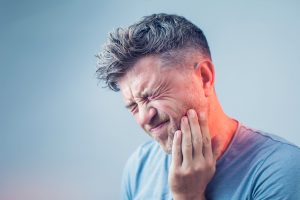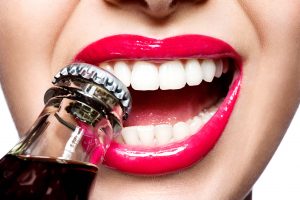There are many factors that ensure a healthy smile, but one of the most important ones is a simple tool used twice a day: the toothbrush. It’s a question we dentists get asked often, “What is the best toothbrush?” There is an abundance of oral care products to choose from and it can seem overwhelming to sift through the options.
Manual toothbrushes are sort of a thing of the past with so many affordable electric brushes on the market, but those may not outweigh your own personal preference when deciding the best toothbrush for you.
The best toothbrush is not even the tool itself, it is how it is used! Dr. Jonathan Hale qualifies any toothbrush as a great toothbrush if the person uses it does these two things:
1) Uses it twice a day (for a minimum of two minutes each time).
2) Uses it properly.
This answer seems hardly sufficient. In the world of consumerism and an ever-growing product supply of things, we are told we must buy the latest and greatest. How could there not be a “BEST toothbrush”?
There are toothbrushes that are better than others, but each person has different needs, budgets, and goals so what’s best for you may not be the best option for someone else.
Top Considerations for Selecting the Best Toothbrush
A dental professional can help you decide on the best toothbrush for you based on your preferences, oral care habits, and needs. Here are our top considerations when picking out the best toothbrush:
- Mouth Size: What size of toothbrush head fits your mouth? If you have a small mouth, a small toothbrush head may be sufficient for you. Otherwise, it may be hard to maneuver a large toothbrush head around in your mouth.
- Do you have Gum Disease or issues with Gum Health? Those diagnosed with Periodontal disease (gum disease), may need a toothbrush with a Waterpik to ensure the pockets of the teeth are cleaned well.
- Do you have dental implants that require special attention while brushing? Dental implants need extra care. You may need to use a water flosser or an interdental brush for complete plaque removal. It’s something to consider when buying a toothbrush.
- Do you have braces or undergoing orthodontic treatment? Did you know there are toothbrushes made especially for braces? Tartar buildup and food particles love braces because they can hide. Look for a tool called a proxabrush to help fight decay between the wires of braces. Follow up with your orthodontist for recommendations, too! Keeping your teeth healthy and strong while in braces is really important.
- Do you have areas of sensitivity? Electric toothbrush vibrations may trigger sensitive areas of teeth and gums. Gum recession can also lead to sensitivity so consider this.
- Are there areas of your mouth that are hard to reach? People with wisdom teeth often find it hard to brush way back there. You may need a smaller toothbrush head to fit all the way in the back. No one said you can’t have more than one toothbrush. Maybe you need two toothbrushes to ensure a tartar build-up is removed completely!
- Do you have any special needs that may call for an alternative toothbrush? Physical Limitations: Things like arthritis or missing fingers may call for a brush that has a wider handle or a customized, DIY toothbrush solution. Don’t let limitations keep you from maintaining good oral hygiene.
- Are you cavity-prone or prone to having more plaque and build-up on your teeth? Plaque and tartar are why we use a toothbrush to begin with! Some people are prone to having more build up due to genetics or simply a poor dental hygiene routine, but nevertheless, we are each unique and so are our needs. If you tend to need more dental treatment than your peers or your dentist tells you that you have high caries, then you may benefit from an electronic toothbrush over a manual.
- What is your budget? What’s best for you may not be best for everyone. If you have a decent budget, try out a nice Oral-B electric toothbrush or Phillips Sonicare toothbrush. With electric toothbrushes, less effort is needed to get the best clean possible. However, it all comes down to using the toothbrush properly and regularly. You can own the best electric toothbrush in Indiana and still have decay if you aren’t using it.
- How big is your hand? Hand size: Children often use smaller-sized toothbrushes because they have much smaller hands, mouths, and teeth. If you have a very large hand, then a tiny toothbrush won’t be a good fit for you. Someone with a larger hand will do best with a larger-sized toothbrush.
Budget-Friendly Toothbrushes
Getting your teeth clean does not need to cost a fortune. There are many affordable toothbrush options in both manual and electric. The price of a toothbrush can cost as little as a dollar or two. It is, even more, cost-effective to buy a pack of toothbrushes– smart buy for the penny savers.
The next time you are at the store, check out the toothbrush aisle. You will be surprised at how many choices there are for an affordable toothbrush. Some are even cheaper than what you would find online. There are manual and electric options in-store and online. And, there are a variety of colors to choose from.
The Best Toothbrush is the One You Will Use
The truth is, any toothbrush can be a great toothbrush. It all comes down to how often it is used and how well it is used. Be sure to brush your teeth twice a day for two minutes each time at the very least. That’s the key to success!
Do I need to use my toothbrush twice a day?
Yes, you brushing your teeth twice a day is important to remove plaque that can be harmful to your teeth and gums. Even if you haven’t eaten any food, you need to brush your teeth. Plaque starts to form immediately after brushing your teeth whether you’ve eaten or not.
Brushing for two minutes is really not that long of time if you take into consideration the number of teeth you have in your mouth. A healthy adult should have 32 teeth (including wisdom teeth.) This time has been proven to be the minimum amount of time you should focus on your teeth -twice a day!
Built-In Timer
Most people tend to think that they brush longer than they actually do. Having a built-in, two minutes timer is a great feature for those who need to brush longer. And, two minutes can seem like a decade when brushing your teeth. It’s definitely not necessary but often comes standard with smart toothbrushes. A simple glance at the clock can be a great tool to use, too.
Pressure Sensor for Hard Brushers
Electric toothbrushes can help improve your oral health by providing a deeper clean than a manual brush. It is also great for people who tend to press too hard when brushing their teeth, as the sensor will alert them when they are doing so. Your teeth cleaning shouldn’t be hard or viscous.
Comfort and ease of brushing
Being able to comfortably hold the toothbrush is important to maintaining proper brushing technique. Older patients or patients with arthritis, or otherwise limited mobility can benefit from a thicker handle which makes it easier to hold. Someone who has very small hands may need a smaller-sized brush rather than a heavy-duty Philips Sonicare.
Tips for Brushing
Change out your manual toothbrush or swap out your replacement heads often! Every three months, if you are sick, or if the ends become frayed. Whatever comes first, it’s best to change out the replacement heads on a regular basis to ensure the hardworking toothbrush is doing what it’s supposed to be doing!
Flouride: Use a toothpaste that has fluoride in it because fluoride helps to re-mineralize ie the enamel and kill bacteria.
Pros of a Manual Toothbrush
- Available in many places
- More portable than electric toothbrushes
- Don’t require batteries or an electrical outlet
- Easy to travel with due to their slimmer design
- Easy for kids to get used to before going to an electric brush
- Affordably priced
Cons of a Manual Toothbrush
- Requires more hand and wrist movement to remove plaque build-up & tartar from teeth
- Doesn’t have a two-minute brushing timer like many power brushes
Pros of an Electric Toothbrush
- More efficient than a manual toothbrush
- Often has a built-in two-minute timer to ensure brushing for the recommended two minutes
- Electric toothbrushes can be easier to use for people with limited mobility or dexterity in their hands.
- Various cleaning modes
- Electric toothbrushes can be more effective at removing plaque and bacteria from teeth than manual toothbrushes.
- Wide variety of options and price points
- Can be fun and engaging to use, especially for children
Cons of Electric Toothbrush
- Need Electricity
- Sensitivity may be more intense with a vibrating toothbrush
- Some people report powered brushes to be too abrasive on their teeth and gums.
- More expensive. The newest Oral B with all the bells and whistles can cost near $400!
Conclusion
The best toothbrush is one that fits the needs, budget, and goals of its users. If you use your toothbrush regularly and properly then need not worry, you are doing great! Remember, regular brushing helps to prevent dental plaque buildup and keep your pearly whites sparkling clean. Good oral hygiene is the key to optimal dental health.


